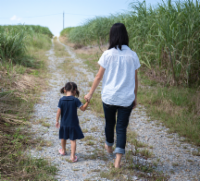After disasters, nuke industry wants us to live in its radioactive waste

Sample comments and points. Please feel free to pick and choose and reorder in your own words. This will be more effective than just cutting and pasting:
I thank ICRP for the opportunity to comment on draft recommendations, TG93 Radiological Protection of People and the Environment in the Event of a Large Nuclear Accident and am pleased to submit the following:
ICRP’s recommendations for “recovery” from nuclear disasters will increase risk to health, particularly for women and kids, through its so-called “recovery” processes.
These processes support shifting health and recovery responsibilities from industry and government to individuals and communities, despite difficulties in implementing them over the long term. This makes the recovery process more about recovering the nuclear industry’s money and shattered reputation than the lives it has ruined.
These processes are instituted with the assumption that they will be carried out to the letter and that there will be no discernible health impacts, despite the difficulties in maintaining the processes and current research showing that low doses harm health.
ICRP recommendations make nuclear power a more appealing energy source than it actually is by convincing governments and people that recovery is possible and that living in a contaminated environment is workable. By ICRP’s own admission, this is likely not true.
ICRP should adjust its recommendations in the following manner:
- ICRP should recommend that, at the least, women (particularly those of childbearing years) and children depart land contaminated by nuclear disasters.
- ICRP should abandon encouraging broad public acceptance and use of any process that tries to convince people they can live in radioactive contamination, such as the “co-expertise processes” ICRP’s draft supports. Even if all processes are non-coercive and transparent, they may still fail to meet ICRP exposure recommendations; be abandoned over time due to cost; or abandoned due to the arduous nature of the constant vigilance necessary to maintain them.
- ICRP should abandon optimization and justification principles, on which the “co-expertise process” relies, because these principles do not comply with the right to health per the United Nations Human Rights Council determination.
- ICRP should recommend contaminated land not be used for agriculture.
- ICRP should recommend food contaminated with man-made radionuclides not be consumed, particularly by women and children; and that import and export of contaminated food occur only for research purposes.
 admin
admin
ICRP has extended the deadline for comment to October 25, 2019.




